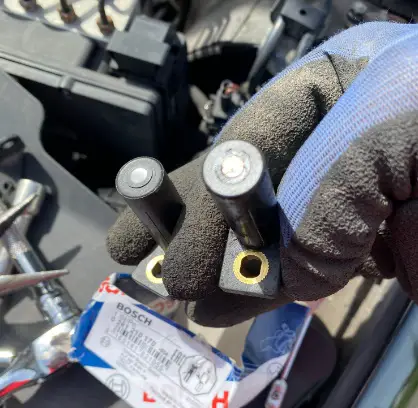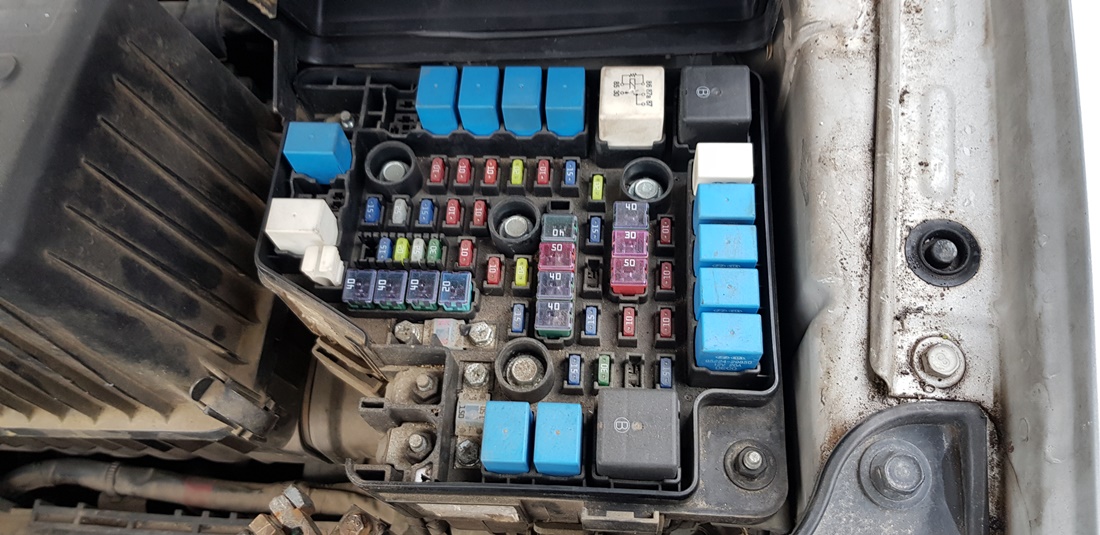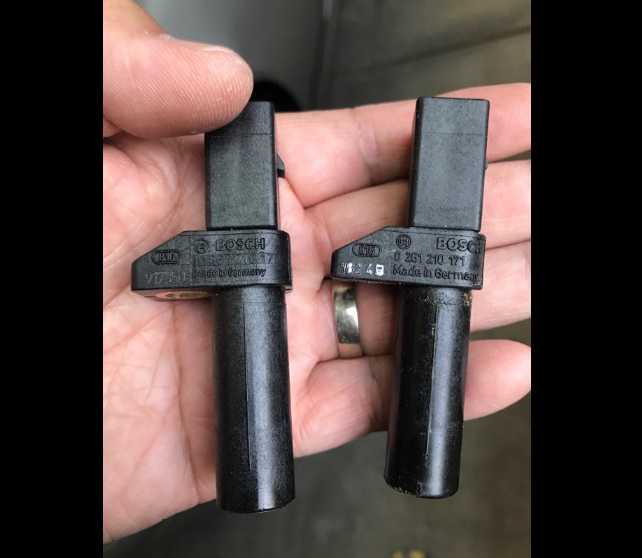Driving with a shaking steering wheel can be disconcerting and uncomfortable, not to mention potentially dangerous.
A shaking steering wheel while driving can occur for several reasons.
- Key Takeaway
- What Causes Steering Wheel To Shake While Driving
- Signs of Shaking Steering Wheel While Driving
- How To Diagnose a Shaking Steering Wheel
- How To Fix a Steering Wheel That Shakes While Driving
- Is It Safe To Drive When Your Car Steering Shaking?
- How Much Does It Cost To Fix a Shaking Steering Wheel?
- FAQs
- Q: How can I tell if my brake rotors are warped?
- Q: Can a bad wheel alignment cause the steering wheel to shake?
- Q: What role does the suspension system play in steering wheel vibrations?
- Q: How does a brake caliper affect steering wheel vibration?
- Q: Can tire alignment issues cause the steering wheel to shake?
- Q: What are some other common causes of a shaking steering wheel?
- Q: Should I be concerned if my steering wheel shakes at higher speeds?
- Q: What should I do if my steering wheel starts shaking?
- Q: What are some steps I can take to prevent steering wheel vibrations?
- In Conclusion
Key Takeaway
- Steering wheel shaking while driving can be caused by several factors such as warped brake rotors, tires being out of balance, damaged wheel bearings, tie rod ends or ball joints, and improper tire alignment.
- Signs of a shaking steering wheel while driving include noticeable vibrations in the steering wheel, especially at certain speeds or when braking, unusual noises, difficulty steering, and uneven tire wear.
- Diagnosing a shaking steering wheel involves checking for common issues such as tire balance and alignment, inspecting the brake system for warped rotors, examining the suspension components like tie rods and ball joints for wear or damage, and evaluating the condition of the wheel bearings.
- Fixing a shaking steering wheel typically involves balancing and aligning the tires, replacing or repairing damaged suspension components like tie rods or ball joints, fixing or replacing warped brake rotors, or addressing issues with the wheel bearings.
What Causes Steering Wheel To Shake While Driving

The shaking of the steering wheel while driving can be caused by several factors such as warped brake rotors, tire alignment or balancing issues, a sticking brake caliper, suspension problems, bad wheel bearings, or axle issues.
1. Warped Brake Rotors
Warped brake rotors are a common cause of a shaking steering wheel. When the rotors are not even, they can cause the brakes to vibrate, which transfers to the steering wheel. This is commonly felt when braking, particularly at high speeds.
2. Tire Alignment Issues
Tire alignment issues can also cause the steering wheel to shake. If your tires are not properly aligned, they won’t move in a straight line. This can cause the vehicle to shake or vibrate, which can be felt in the steering wheel, especially when making turns or navigating bends.
3. Tire Balancing Problems
Tire balancing problems are another common cause. If your tires are not balanced correctly, it can cause uneven wear and tear, which can lead to vibration that can be felt in the steering wheel. Regular tire rotations and balance checks can help prevent this issue.
4. Sticking Brake Caliper
A sticking brake caliper can cause the steering wheel to shake. The caliper can stick, causing the brake to drag, which creates a vibration or shaking in the steering wheel. This is often more noticeable when slowing down or coming to a stop.
5. Suspension Issues
Suspension issues, such as worn-out or damaged struts, shocks, or control arms, can cause the steering wheel to shake. These components help absorb road shock and keep the ride smooth, but when they wear out, they can cause excessive vibration.
6. Bad Wheel Bearings
Bad wheel bearings can also cause a shaking steering wheel. The wheel bearings allow the wheels to spin smoothly, and when they’re not working correctly, it can create a shaking or vibrating sensation that’s often felt in the steering wheel.
7. Axle Problems
Finally, axle problems can cause the steering wheel to shake. If your vehicle’s axle is bent or damaged, it can cause the car to vibrate as it struggles to turn the wheels. This vibration can be felt in the steering wheel, particularly at higher speeds.
Signs of Shaking Steering Wheel While Driving
- The steering wheel vibrates or shakes when the vehicle is moving, especially at high speeds.
- The vibration intensifies when braking or decelerating.
- There’s a noticeable wobble in the steering wheel while driving straight.
- The shaking becomes more pronounced when making turns or navigating bends.
- Unusual noises, such as clicking or grinding, accompany the shaking.
- The car tends to pull to one side when you’re driving or braking.
- You feel a general instability or lack of control over the vehicle, particularly while steering.
How To Diagnose a Shaking Steering Wheel
Here is how to diagnose a shaking steering wheel:
Check for Worn, Faulty or Out of Balance Chassis Components
One of the first steps in diagnosing a shaking steering wheel is to check for worn, faulty, or out-of-balance chassis components. These can include things like tie rod ends, ball joints, or wheel bearings. If any of these parts are damaged or worn out, it can result in a vibration in the steering wheel.
Raise the Front End of the Vehicle
Another step in diagnosing a shaking steering wheel is to raise the front end of the vehicle on jack stands. This allows you to more easily inspect the tires and wheels for any issues that might be causing the shaking.
Inspect the Brake Rotors
Warped brake rotors can cause your steering wheel to shake, especially when you slow down or stop the vehicle. Therefore, it’s important to check the condition of your brake rotors if you’re experiencing a shaking steering wheel.
Examine the Wheel Bearings and Axles
Bad wheel bearings or problems with the axles can also cause the steering wheel to shake. If you’re experiencing this issue, it’s crucial to examine these parts for any signs of damage or wear.
Ensure Proper Tire Pressure
Proper tire pressure is essential for smooth driving and a steady steering wheel. If your tires are underinflated or overinflated, it can cause your steering wheel to shake. Therefore, checking and adjusting your tire pressure is an important step in diagnosing this problem.
Check the Tires
Finally, consider the condition of your tires. If they are worn unevenly or have any flat spots, it can cause the steering wheel to shake. Regularly rotating your tires and replacing them when necessary can help prevent this issue.
How To Fix a Steering Wheel That Shakes While Driving
Here is how to fix a steering wheel that shakes while driving:
Clean Your Wheels and Brakes
One of the simplest ways to fix a shaking steering wheel is by cleaning your wheels and brakes thoroughly. Accumulated debris can cause the calipers to get stuck, leading to a shaking steering wheel. Make sure to drive immediately after washing to avoid rust.
Replace Warped Brake Rotors
If your steering wheel shakes when you slow or stop your vehicle, it could be due to warped brake rotors. In such cases, replacing the brake rotors can help resolve the issue.
Balance Your Tires
Tires being out of balance is one of the most common causes for a shaky steering wheel. Getting your tires balanced by a professional can help fix this problem.
Oil or Replace Damaged Bearings
Damaged bearings can also lead to a shaking steering wheel. You can try oiling the bearings to solve this problem. However, if the damage is severe, you may need to schedule a service appointment to replace them.
Correct Wheel Alignment
Incorrect positioning of the wheels can cause the steering wheel to vibrate. One of the quickest ways to diagnose this issue is to check the alignment of your wheels. If misalignment is causing the issue, getting your wheels aligned by a professional can help fix the problem.
Is It Safe To Drive When Your Car Steering Shaking?
No, it is generally not safe to drive when your car’s steering wheel is shaking.
A shaking steering wheel can be a sign of various issues, such as wheel imbalance, worn-out tires, suspension problems, or brake issues.
All of these can affect the control you have over your vehicle, potentially leading to dangerous situations on the road.
It’s crucial to address any shaking or vibration in your steering wheel as soon as possible to ensure your safety and the safety of others on the road.
You should stop driving and get your vehicle inspected by a professional mechanic who can diagnose and fix the problem.
Ignoring this issue can lead to more severe damage, costly repairs, and increased risk while driving.
How Much Does It Cost To Fix a Shaking Steering Wheel?
The cost to fix a shaking steering wheel can vary greatly depending on the underlying cause, ranging from as little as $50 to upwards of $1,000.
If the issue is due to tire imbalance or alignment, the cost would be on the lower end, typically between $50 to $100.
However, if the problem is more severe, like issues with the suspension or brake system, the repair costs could go into hundreds or even thousands of dollars.
For instance, replacing a power steering pump could cost between $200 to $350, while a full suspension system replacement could go up to $1,000 or more.
It’s important to get a professional diagnosis to understand the exact cause of the shaking steering wheel and the associated repair costs.
FAQs
Q: How can I tell if my brake rotors are warped?
A: If your steering wheel shakes while braking, it is often a sign of warped brake rotors. You may also feel vibrations or pulsations through the brake pedal.
Q: Can a bad wheel alignment cause the steering wheel to shake?
A: Yes, misaligned wheels can cause the steering wheel to shake while driving. If your vehicle’s alignment is off, it puts additional stress on the suspension system, resulting in vibrations and shaking.
Q: What role does the suspension system play in steering wheel vibrations?
A: The suspension system is responsible for supporting the weight of the vehicle and providing a smooth ride. If the suspension components, such as the shocks or struts, are worn or damaged, it can lead to vibrations and shaking in the steering wheel.
Q: How does a brake caliper affect steering wheel vibration?
A: A malfunctioning brake caliper can cause uneven braking and result in vibrations that can be felt in the steering wheel. If the caliper is not properly releasing, it can cause the brake pads to stay in contact with the brake rotor, leading to shaking.
Q: Can tire alignment issues cause the steering wheel to shake?
A: Yes, improper tire alignment can cause the steering wheel to shake. When the wheels are not aligned correctly, it puts uneven pressure on the tires, resulting in vibrations that can be felt in the steering wheel.
Q: What are some other common causes of a shaking steering wheel?
A: Other common causes include worn wheel bearings, axle problems, and worn tie rod ends. These issues can create vibrations that are transmitted to the steering wheel.
Q: Should I be concerned if my steering wheel shakes at higher speeds?
A: Yes, if your steering wheel shakes at higher speeds, it is important to have it inspected by a mechanic. Shaking at higher speeds can indicate more serious underlying issues with your vehicle’s suspension or steering system.
Q: What should I do if my steering wheel starts shaking?
A: If your steering wheel starts shaking, it is important to get it checked by a qualified mechanic. They can diagnose the underlying cause and recommend the necessary repairs to ensure your vehicle is safe to drive.
Q: What are some steps I can take to prevent steering wheel vibrations?
A: Regular maintenance, such as keeping your tires properly inflated, getting regular wheel alignments, and replacing worn suspension components, can help prevent steering wheel vibrations. Additionally, avoiding hitting curbs or potholes can also help prevent damage to your suspension system.
In Conclusion
Steering wheel shakes while driving can be a dangerous and concerning issue. It is important to be aware of potential causes, signs, and solutions in order to ensure safety on the road.
Common causes of steering wheel vibration include warped brake rotors, unbalanced wheels or tires, and worn-out tie rod ends.




